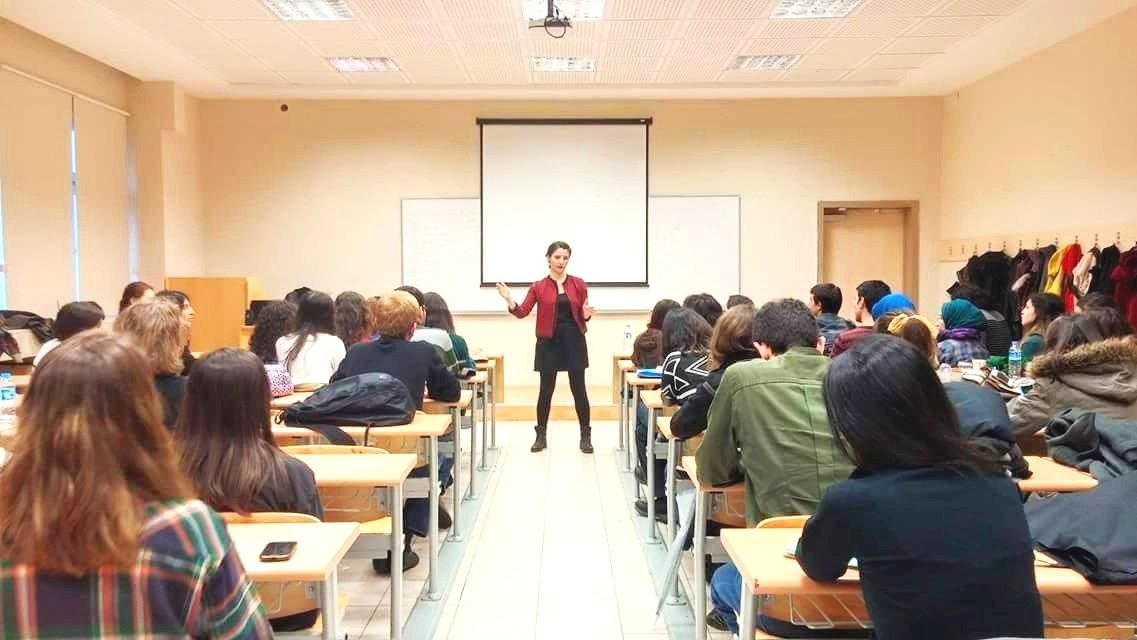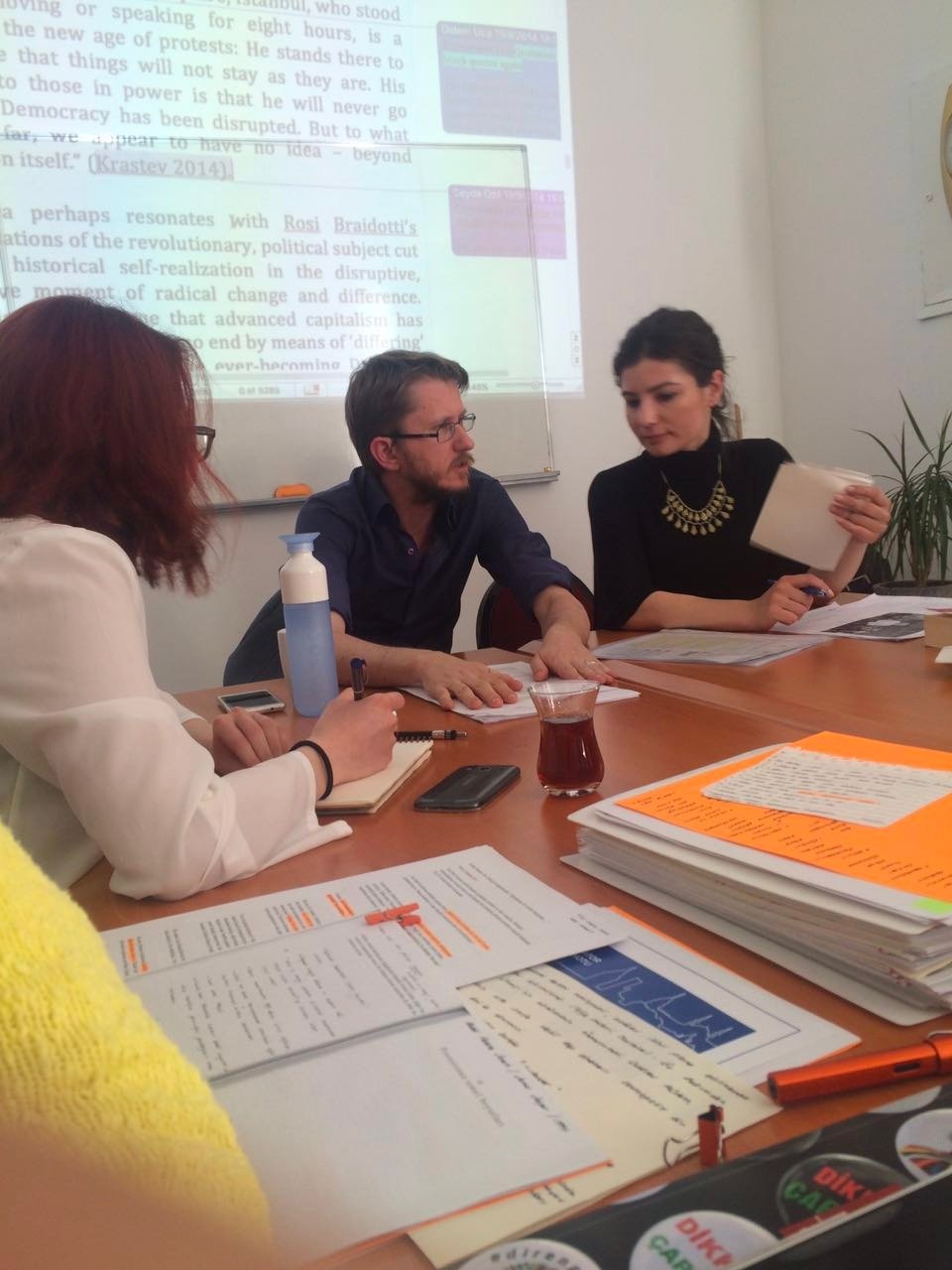
Years of experience as a student have taught me that the way students perceive their relationship with lecturers and tutors is central to their academic lives with small behaviours making a big impact. To see an instructor making an effort to use inclusive teaching strategies, assess individual needs, pay attention to learning preferences and goals encourages and motivates students for class participation. I have also learnt that inclusive instructional practices will benefit all, not just specific groups. Last but not least, an approachable and accessible instructor with clear expectations makes the students feel comfortable.
Courses Taught
-
This MA course offers an overview of wider debates on gender and labour and focusses on the construction of gender identities in relation to work in the late Ottoman Empire and Modern Turkey. Drawing on historical, sociological and anthropological research, the course offers a systematic reading and an analytical discussion of the political, economic and cultural structures that underlined gendered labour markets and work experiences.
-
This MA course aims to teach students to discuss the purpose of archives and their links to the broader course topics and to connect evidence with valid historical arguments. Archival silences demand critical conversations about the production of history.
Teaching with archival sources can give voice to gaps in mainstream repositories and open a discussion on the reasons behind such gaps in the first place. Throughout the semester, I bring primary source documents to class discussions along with brief contextual information in order to
(1) impart the value of primary documents to the construction of historical knowledge;
(2) exposing students to the skills of historical research by engaging them in the activities of historians and teaching them basic archival literacy.
-
This MA course provides a variety of key insights and skills in how cultural criticism has been and can be put into practice, in various forms: creative criticism (storytelling), action research, (performative) interventions in public space, video/audio essays, podcasts and vlogging, to name a few. Through hands-on assignments and learning from professionals, students will develop critical and creative skills including expressive, editorial and argumentative proficiencies in the production of works of cultural criticism, both written and applied.
-
This BA seminar's main goal is to introduce students to the fundamental concepts, procedures, problems, and strategies used in comparative-historical sociology. The study of comparative-historical sociology focuses on the origins and multidimensional growth of diverse macro-social institutions and phenomena (such as states, markets, revolutions, welfare systems, collective violence, religion, and nationalism) in various regions of the world. It aids in our understanding of the contemporary world by illuminating the complex and controversial historical trajectories.
-
The BA course looks at when and how people come together to support or oppose social change using historical and modern protest movement examples. We look to sociological and social science scholarship to construct analytical and theoretical frameworks that enable us to address the problems that arise from the experiences of these movements. The course will explore a number of important issues, such as: How can we identify and take full advantage of the conditions that allow for (or prevent) the birth of a movement? Which organisational structures have supported movements, and which have put them in danger? What varied approaches to strategy and tactics have different movements taken, and how successful have they been in various situations?
-
Key issues in social and cultural history are discussed in this BA course's interdisciplinary forum. We explore these topics using both primary and secondary sources, but we also focus on how our debate might relate to cultural history as it is studied in disciplines like global history. Although we occasionally make mention of later and earlier eras, the nineteenth and twentieth centuries will be the main focus of the course.
-
An introduction to the history and historiography of science from ancient Greece to the present is provided in this BA course. It is intended to provide a foundation for people with no prior knowledge of the subject and to expand their understanding for those who do. We will look at how science has interacted with philosophy, sociology, economics, and anthropology throughout history. This course's goal is to improve students' ability to analyse and contextualise ideas rather than to become an encyclopaedia of scientific history.
-
This BA course examines numerous social issues from a sociological and historical standpoint, among other things by posing the following questions: Who, for instance, establishes what constitutes a social issue? Why do some social issues get so much press while others go unnoticed? And what effects do specific definitions of social problems have? Using case studies of current problems including inequality, racism, mass incarceration, health care, and climate change, we will address these questions.
-
In this BA course, we interact with sociological studies on class, race, gender, and immigration in order to uncover the fundamental outlines of the structure and culture of social inequality. The course focuses on patterns of unequally distributed social resources and life chances and investigates how these patterns are influenced by interconnected systems of sex-gender oppression, racial dominance, and class exploitation. We investigate how inequalities develop in the types of organisations that most of us spend much of our lives in, including workplaces, in addition to looking at broad-scale social trends.
“Although it is the foundation of the desire to teach, passion is not enough to be a good teacher. Learning the skills of making students comfortable in the classroom, recognizing differences in their reactions and learning preferences, and teaching in a flexible manner require systematic training and life-long self-reflexive critical thinking.”

